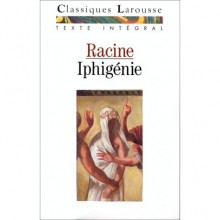
Anybody who is familiar with the Ancient Greek plays will know that this is a modern retelling of the story of Euripides Iphigeneia at Aulis. However it is told from a more rationalistic, secularist point of view rather than a direct translation from the original. For those who do not know, the story is set just prior to the Trojan War when Agamemnon is preparing to set sailed with a Greek armada to 'rescue' Helen from Paris, who had kidnapped her (or did she go willingly because Paris was a much more romantic person than Menelaus) and taken her to Troy. However the winds were not blowing favourably so Agamemnon asks the gods what the problem is and they tell him that unless he offers up his daughter as a sacrifice the winds will not change. This play is about the personal and social struggles that Agamemnon faces between his wife (Clytemnestra), who does not want to see her daughter sacrificed, and the Greek kings, who want to sail off to Troy and are looking for any sign of weakness in Agamemnon so they they may depose him.
The problem with this play is that there is a happy ending, which no doubt would have impressed the original audience (who were probably not that familiar with the story, in the same way most of us moderns are not familiar either). Unfortunately it does not work because the whole reason that Agamemnon was murdered by his wife when he returned from Troy was because he had sacrificed his daughter at Aulis. One could also argue that this was simply an excuse to get rid of a troublesome husband and for Clytemnestra's lover to take over the mantle of kingship. There are also further problems with Euripides' version where Iphigeneia was replaced by a cow and then spirited off to Tauris by Artemis, but this is probably not the forum for it to be discussed (though I don't actually discuss it in my treatment on Iphigenia in Tauris).
The other thing I should note with this play is the political undertones that are evident. The issue is raised as to Agamemnon's real reason for going to Troy: to extend his empire across the Aegean to Asia. However, it should be remembered that his hold on the Greek alliance is tenuous at this point in time, though as it turns out it is only Agamemnon and Menelaus who have a problem with the Trojans (though no doubt this is an aspect of Greek nationalism in that while they may not have been united under one king, the fact that a foreigner – a barbarian – kidnapped a Greek princess, would have set the hackles of all the Greeks on edge). There is only one other Greek king that plays a major role in the play: Achilles. Achilles is also torn because he has been betrothed to Iphigeneia, but he also wants the glory of going to war against the Trojans. He forms the catalyst of the whole mission, and is also the key to Agamemnon's power: he is the king that can pretty much decide whether Agamemnon remains overlord.
The other interesting thing is that the whole nature of this event reminds me of another story; one of the foundational stories of Christianity: Abraham and Isaac. In this story Abraham, after waiting a very long time and growing to an age that nobody could consider him to be fit to have a child, gives birth (or his wife does) to a son. God then tells him to take his son up onto Mount Moriah and to offer him up as a sacrifice, something that Abraham dutifully does. However, at the last moment God intervenes and sends a lamb. I wonder whether, in producing this play, Racine is causing his audience to remember this Bible event (which no doubt the audience would be much more familiar). It is difficult to tell, though I suspect that since we are in an age of rationalism at the time of the writing of this particular play, Racine is probably questioning, and using the fickle Greek gods as a platform, the nature of the Christian god.

 Log in with Facebook
Log in with Facebook 






